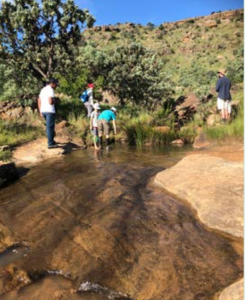In this Article
When appropriate transition policies are used, implementation of nature-based solutions result in creation of more employment opportunities, particularly in rural areas.

Source: UNEP
Nature-based solutions (NbS) are defined as “actions to protect, conserve, restore, sustainably use, and manage natural or modified terrestrial, freshwater, coastal, and marine ecosystems, which address social, economic, and environmental challenges effectively and adaptively, while simultaneously providing human well-being, ecosystem services and resilience, and biodiversity benefits” in a resolution on NbS adopted at the UN Environment Assembly (UNEA) in March 2022.
The transition aims to establish good employment opportunities for everyone in society and economies. A framework is provided by the International Labour Organization (ILO) Just Transition Guidelines. It offers a platform to enable the full engagement of social partners, women, and indigenous peoples while creating quality employment opportunities and green jobs in NbS. The 9 policy areas of the guidelines are macroeconomic and growth policies, industrial and sectoral policies, enterprise policies, skills development, occupational safety and health, social protection, active labour market policies, rights, and social dialogue and tripartism.
Common themes identified by the International Union for Conservation of Nature (IUCN) can be used to promote respectable employment in Nbs. This includes evidence-based decision-making, inclusive and meaningful stakeholder engagement, policy coherence and use of tools across portfolios to maximize opportunities and mitigate risks, and upholding of rights and fostering empowerment.
Reference:
ILO, UNEP and IUCN. 2022. Decent Work in Nature-based Solutions 2022. Geneva. Licence: CC BY-NC-SA 3.0 IGO. Retrieved August 3, 2023 from https://wedocs.unep.org/bitstream/handle/20.500.11822/41401/Decent_Work_in_NbS.pdf?sequence=3&isAllowed=y




